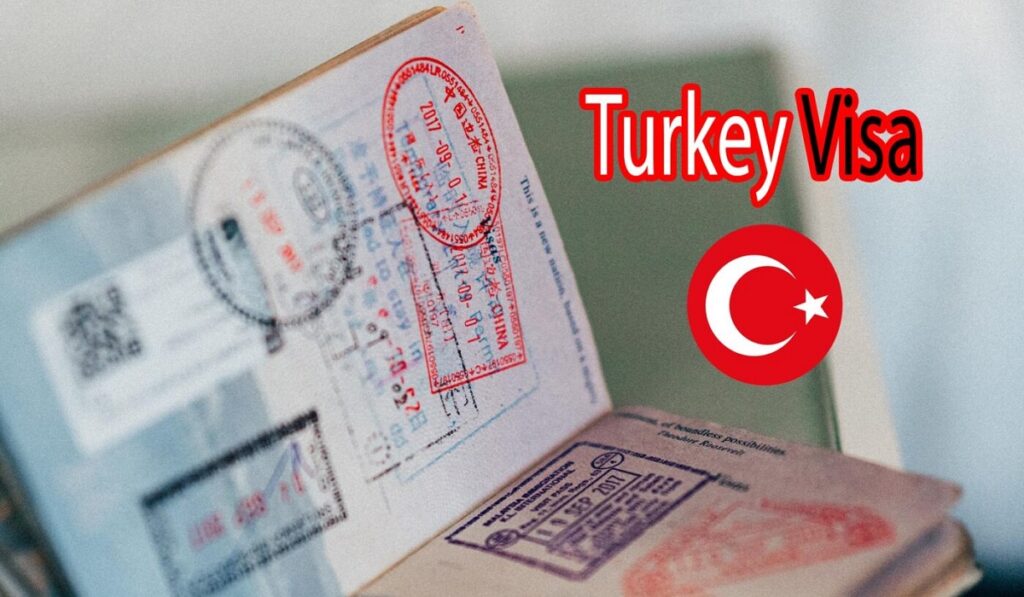Overstays occur when individuals exceed their authorized stay duration, leading to fines, bans on reentry, or even deportation. Unlawful Presence involves staying without legal authorization, resulting in similar penalties. Navigating these complexities requires expert assistance. Bicak offers specialized legal guidance on visa-related matters in Turkey. With a deep understanding of Turkish immigration law, their experienced team assists clients in resolving overstays and unlawful presence issues. They provide clarity on fines, penalties, and potential outcomes, working to minimize the impact on clients’ future immigration prospects. Whether calculating fines or providing guidance on payment processes, their comprehensive support streamlines the resolution of immigration challenges. If you’re navigating the complexities of overstays, unlawful presence, or other visa-related concerns in Turkey, seeking legal assistance from experienced lawyers can be the first step toward a resolution.
Overstays & Unlawful Presence in Turkey
Overstaying and unlawful presence are terms often used in the context of immigration and legal status in a foreign country. They refer to situations where an individual remains in a country beyond the authorized period allowed by their visa or legal entry status.
Let’s delve into their meanings and definitions:
Overstaying
Overstaying occurs when a person remains in a foreign country after the expiration of their authorized period of stay, as specified by the visa or entry stamp issued to them upon arrival. This could happen for various reasons, such as a change in travel plans, failure to leave the country on time, or a desire to extend one’s stay without obtaining the necessary permissions. Overstaying can have serious consequences, including legal penalties, deportation, and future visa rejections.
Unlawful Presence
Unlawful presence refers to the period of time during which a foreign national is physically present in a country without legal authorization. This can occur due to various circumstances, including entering a country without a valid visa, overstaying a visa, or violating the terms of a visa. Unlawful presence is a legal concept and can have significant implications for an individual’s future immigration prospects.
Key Points to Note
- Legal Consequences: Both overstaying and unlawful presence are considered violations of a country’s immigration laws. Depending on the country and the duration of the violation, individuals may face fines, deportation, or bans on reentry.
- Impact on Future Immigration: Overstaying or having a period of unlawful presence can severely impact an individual’s ability to obtain future visas or legal status in the same country. Many countries have bars on reentry or restrictions on obtaining new visas for individuals who have overstayed or accrued unlawful presence.
- Waivers and Exceptions: Some countries provide certain waivers or exceptions for individuals who have overstayed or accrued unlawful presence. These may be based on humanitarian grounds, family ties, or other compelling reasons. However, obtaining such waivers is often a complex and rigorous process.
- Voluntary Departure: In some cases, individuals who realize they have overstayed their authorized period may choose to voluntarily depart the country before they are apprehended. Voluntary departure can sometimes mitigate the potential negative consequences of overstaying.
- Regularization of Status: Some countries offer pathways for individuals who have overstayed or are in unlawful presence to rectify their status, such as applying for certain visas, seeking asylum, or adjusting their status based on specific eligibility criteria.
Overstaying and unlawful presence are terms that highlight the importance of adhering to a country’s immigration laws and regulations. Individuals planning to visit or stay in Turkey should be aware of their visa expiration dates and take appropriate steps to ensure their legal status is maintained to avoid potential legal and immigration complications.
Visa Policy and Regulations in Turkey
Turkey has a well-defined visa policy that governs the entry and stay of foreign nationals in the country. The regulations and requirements can vary based on the individual’s nationality and the purpose of their visit. Visitors are advised to familiarize themselves with the latest information from official sources / law firms before applying for a visa.
Visa Application Process
The visa application process for Turkey typically involves the following steps:
- Determine Visa Type: Choose the appropriate visa category based on the purpose of your visit, such as tourism, business, work, study, or family reunification. Turkey offers a variety of visa types to cater to different purposes, including but not limited to:
- Tourist Visa
- Business Visa
- Work Visa
- Student Visa
- Family Reunification Visa
- Transit Visa
- Check Requirements: Check the specific requirements for the chosen visa type. This may include documents like a valid passport, application form, passport-sized photos, travel itinerary, proof of accommodation, financial means, and more.
- Apply Online: In many cases, Turkey’s visa application process is online. Applicants are required to complete an application form, upload necessary documents, and pay the relevant visa fee.
- Book an Appointment: Depending on the visa type and the applicant’s nationality, an appointment might need to be scheduled at a Turkish consulate or embassy. During the appointment, applicants may need to provide biometric data (such as fingerprints) and have an interview.
- Attend Interview: If required, attend the interview at the Turkish consulate or embassy. This is common for certain visa types, like work or study visas.
- Visa Decision: After the application is processed, applicants will receive a decision on their visa application. This decision can be an approval, rejection, or request for additional documentation.
- Collect Visa: If the visa is approved, collect the visa sticker from the Turkish consulate or embassy. The visa will be affixed to the passport.
Duration of Visa
The duration of a Turkish visa can vary based on the visa type and the individual’s nationality. Tourist visas, for example, are often issued for stays of up to 90 days within a 180-day period. Work visas and student visas can have longer validity periods based on the nature of the intended stay.
Visa Renewal
In Turkey, some types of visas can be renewed or extended while others cannot. Tourist visas, for instance, generally cannot be extended beyond their initial validity period. However, work and residence permits can be renewed if the individual meets the necessary criteria and requirements. The renewal process usually involves submitting updated documents and demonstrating the continued eligibility for the visa type.
It’s important to note that visa policies and regulations can change, and the information provided here is based on the situation as of August 2023. To ensure accuracy, it’s recommended to refer to immigration law firm sources or contact the relevant immigration lawyer for the most up-to-date information regarding visa policies, application processes, and regulations.
Overstayin in Turkey
An overstay occurs when a foreign national remains in Turkey beyond the authorized period specified on their visa or residence permit. Overstaying in Turkey can lead to several consequences:
- Fines: Overstays usually result in fines. The fines can accumulate on a daily basis, and the amount can vary based on the duration of the overstay and the type of visa or permit.
- Ban on Reentry: Overstaying beyond a certain period can lead to a ban on reentering Turkey for a specified period. The ban duration is usually proportional to the length of the overstay.
- Deportation: In severe cases, overstayers can face deportation, which involves being escorted out of the country by immigration authorities. Deportation can lead to difficulties in obtaining future visas or entry to Turkey.
Unlawful Presence in Turkey
Unlawful presence refers to the period during which a foreign national stays in Turkey without legal authorization. This can occur due to illegal entry, overstaying, or violating the terms of a visa or residence permit. The effects of unlawful presence are similar to those of overstays:
- Fines: Foreign nationals with unlawful presence can be fined, and the fines can accumulate over time.
- Ban on Reentry: Unlawful presence can result in a ban on reentry, preventing the individual from returning to Turkey for a certain period.
- Deportation: Individuals in unlawful presence can also face deportation, which has broader implications beyond the immediate consequences.
Paying Fines for Overstays and Unlawful Presence
Paying fines for overstays or unlawful presence usually involves the following steps:
- Acknowledgment: If you’ve overstayed or are in unlawful presence, acknowledge the violation and be prepared to take responsibility.
- Visit Immigration Office: Visit the local immigration office or a relevant government office that handles immigration matters.
- Fines Assessment: The immigration authorities will assess the fines based on the duration of the overstay or unlawful presence. They will provide you with the exact amount you need to pay.
- Payment: Pay the fines as instructed by the authorities. This could be done at designated banks or online portals.
- Receipt: Ensure you receive an official receipt or proof of payment for your records.
- Compliance: Once you’ve paid the fines, ensure that you comply with any additional requirements set by the authorities, such as departing the country if required.
Overstaying or being in unlawful presence in Turkey can lead to fines, bans on reentry, and even deportation. If you find yourself in such a situation, it’s advisable to address the issue promptly, pay any fines, and work towards rectifying your legal status to avoid further complications.
Navigating Overstays, Unlawful Presence, and More
Are you facing challenges related to overstaying, unlawful presence, or other immigration matters in Turkey?
If you’re facing issues related to overstays, unlawful presence, or any other immigration concerns in Turkey, don’t hesitate to reach out to Bicak. Our experienced legal team is here to offer reliable guidance and expert solutions tailored to your needs. Contact us to schedule a consultation and take the first step towards resolving your immigration challenges with confidence.
 English
English Türkçe
Türkçe Français
Français Deutsch
Deutsch








Comments
No comments yet.